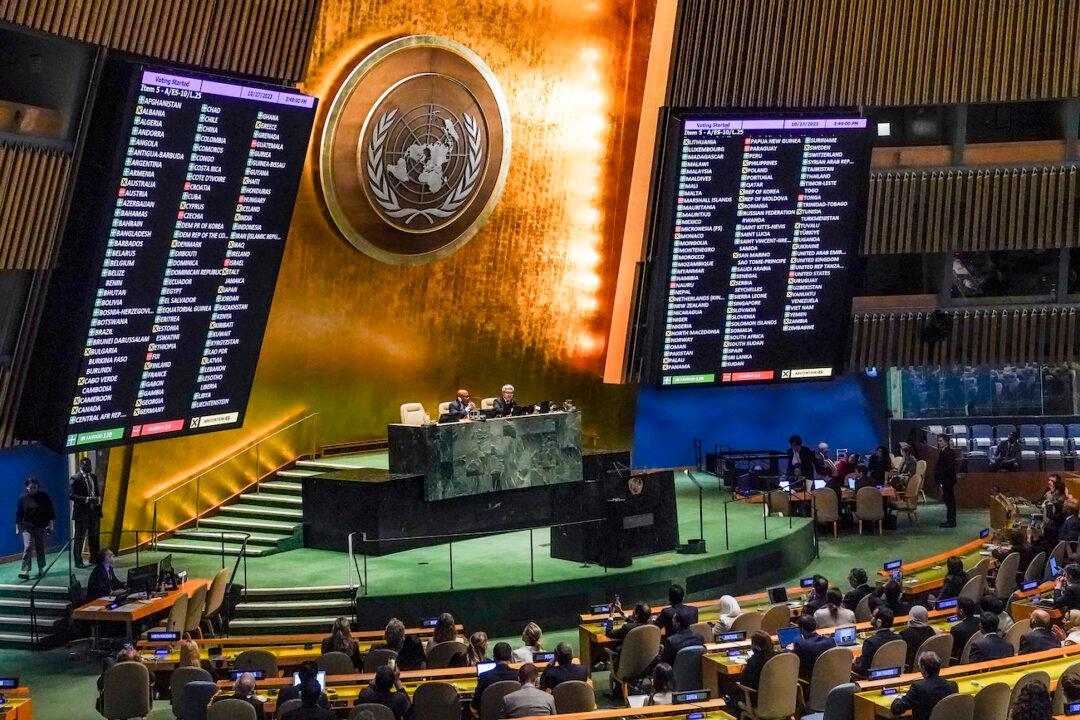The Czech Republic’s top defense official is calling for her country to leave the United Nations after its central policy-making body approved a resolution demanding a ceasefire in Gaza but failing to mention killings and kidnappings of civilians committed in Israel by Hamas.
The Czech Republic was one of 14 U.N. members that voted against the Arab states-drafted resolution, which overwhelmingly passed the General Assembly on Friday with 120 supporting votes and 45 abstentions. A Canadian amendment, which would have unequivocally condemned Hamas’ atrocities and demanded an unconditional release of all hostages held by the terrorist group, was defeated in an 88-55 vote with 23 abstentions.





